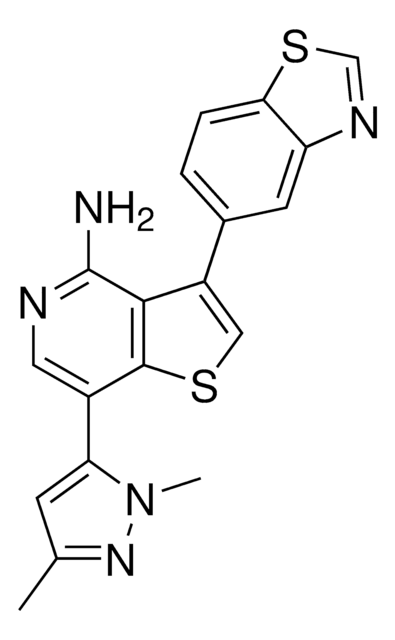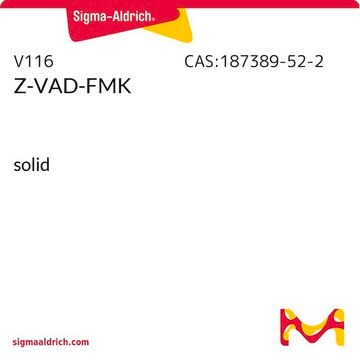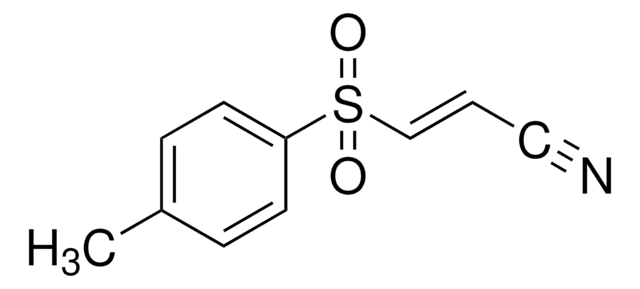480073
Necrosulfonamide
≥95% (HPLC), solid, MLKL inhibitor, Calbiochem®
Synonym(s):
MLKL Inhibitor, Necrosulfonamide, Necrosis Inhibitor III, Mixed Lineage Kinase Domain-Like Protein Inhibitor, Necrosome Inhibitor II, Necrosulfonamide, (E)-N-(4-(N-(3-Methoxypyrazin-2-yl)sulfamoyl)phenyl)-3-(5-nitrothiophene-2-yl)acrylamide
About This Item
Recommended Products
product name
MLKL Inhibitor, Necrosulfonamide, MLKL Inhibitor, Necrosulfonamide, CAS 432531-71-0, is a cell-permeable inhibitor that covalently modifies Cys88 and blocks human MLKL adaptor function.
Quality Level
Assay
≥95% (HPLC)
form
solid
manufacturer/tradename
Calbiochem®
storage condition
OK to freeze
protect from light
color
dark yellow
solubility
DMSO: 100 mg/mL
shipped in
ambient
storage temp.
2-8°C
InChI
1S/C18H15N5O6S2/c1-29-18-17(19-10-11-20-18)22-31(27,28)14-6-2-12(3-7-14)21-15(24)8-4-13-5-9-16(30-13)23(25)26/h2-11H,1H3,(H,19,22)(H,21,24)/b8-4+
InChI key
FNPPHVLYVGMZMZ-XBXARRHUSA-N
General description
Biochem/physiol Actions
human MLKL
Packaging
Warning
Reconstitution
Other Notes
Sun, L., et al. 2012. Cell 148, 213.
Legal Information
Storage Class Code
11 - Combustible Solids
WGK
WGK 3
Flash Point(F)
Not applicable
Flash Point(C)
Not applicable
Certificates of Analysis (COA)
Search for Certificates of Analysis (COA) by entering the products Lot/Batch Number. Lot and Batch Numbers can be found on a product’s label following the words ‘Lot’ or ‘Batch’.
Already Own This Product?
Find documentation for the products that you have recently purchased in the Document Library.
Customers Also Viewed
Our team of scientists has experience in all areas of research including Life Science, Material Science, Chemical Synthesis, Chromatography, Analytical and many others.
Contact Technical Service













